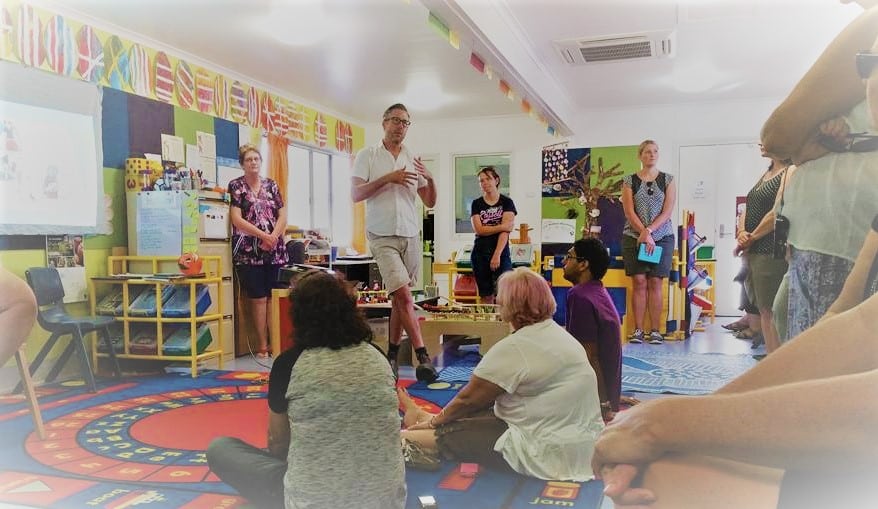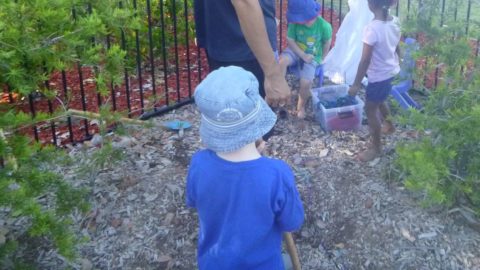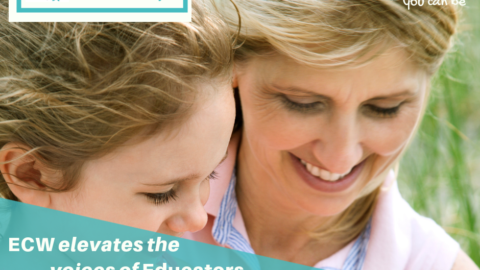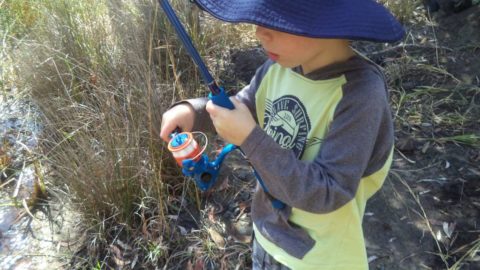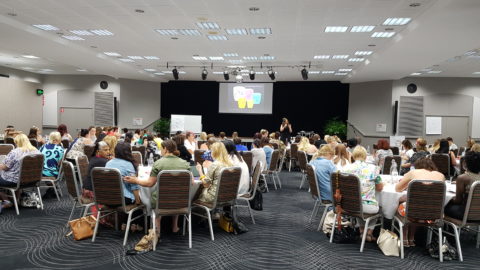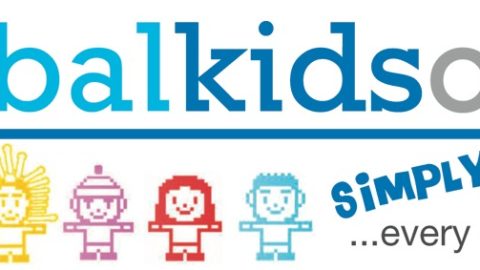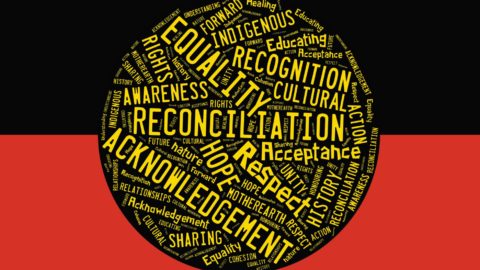Written by Stephen Gallen
“We can be sure that if we take away the child’s ability, possibility and joy in projecting and exploring, then the child ‘dies’. He dies if he does not sense that the adult is close enough to see how much strength, how much energy, how much intelligence, capacity and creativity he possesses. The child wants to be seen, observed and applauded.”
Loris Malaguzzi
“And the [educator’s] goal is the same as that of the children: to find meaning in her work and existence, to see value and significance in what she does, to escape from being indistinct and anonymous, to be able to see gratifying results from her work and her intelligence. The teacher cannot work without a sense of meaning, without being a protagonist.” Carla Rinaldi
Professional [definition]:
- relating to a job that requires special education, training, or skill
- characterised by or conforming to the technical or ethical standards of a profession
- exhibiting a courteous, conscientious and generally businesslike manner in the workplace
- Miriam Webster Dictionary
Being a professional in ECEC is qualitatively different than in most other professions. The corporate ethos that most people associate with the professions isn’t really appropriate or reflective of our professional reality or values. In fact, the opposite is the case – the ‘true’ professional educator is the one who has shoes off, feet in sand pit, or baby on lap, lying back and gazing at the clouds – when she is not wiping down tables as well as runny noses, documenting and critically reflecting on complex pedagogy, and changing nappies.
And this is probably at the heart of the challenges we face in having our professionalism recognised. Despite everything, a key part of our work does actually involve ‘play’, it involves relationships, nurturing and caregiving – the sort of ‘warm and fuzzies’ that are just not easily (if at all) reduced to numbers and quantifiable results. How do we get others to value the work we do (both financially as well as philosophically) when ‘work’ generally is valued according to the bottom line of productivity and the dollar? How “productive” is it to have a cuddle? To dream with children? To lie back and look at the clouds?
While the National Quality Framework and the shift in professional identity that has come with the title “Educator” suggests there has been some sort of significant shift in the last few years, many of us would agree that this has not translated into any significant change in wages, conditions, or professional recognition. Nor has it really, on a deep cultural level, shifted the conversation about ECEC from productivity, affordability and access (the concerns of the economy and of parents and society, in other words adult concerns) to conversations about the meaning, purpose and quality of ECEC (concerns more directly related to children, and to educators).
We would be deluding ourselves if we didn’t think that much of this perception comes from the fact that childcare is largely ‘women’s work’ – its not news to anyone that the field is highly feminised (Department of Education 2013, p2) and that there is a connection between this fact and the relatively low valuing of our labour and professionalism. But this is not just a gendered issue in terms of workforce demographics. Its about the nature of the work itself – work that is relationship based and involves nurturing. Have we really come to grips with this aspect of our work in our advocacy?
To argue for the professional nature of the field we have argued that our work has educational benefits (which will also translate into economic and social benefits in the future) and we have also increasingly highlighted the economic benefits (parents’ participation in the workforce as well as improved social outcomes in the future.) (Commonwealth of Australia (2009) Investing in the Early Years, p6).
To consider the first claim – in our drive to be seen as professional and ‘educational’ , are we at risk of undermining the very special, valuable nature of what we do? Of course we need to articulate that we have a rigorous theoretical knowledge base to our professional practice, along with the practice wisdom that generations of educators and teachers have developed and passed on over the years. The Learning Frameworks aim to do this, and have taken a very creditable stab at ensuring the scope covers not just ‘education’ but care in its broadest sense – the Belonging and Being, as well as the Becoming (Commonwealth of Australia 2009). But could it be that in attempting to advocate for our professionalism, we are sweeping the lived reality of much of our professional lives under a metaphorical carpet? Maybe this is in the nature of Frameworks and other instruments of government rather than a strategic tool for us to use. We see them as a prescription for to follow, an impossible ideal to live up to or an instrument to govern us with. Its a positive thing that we can use the NQF to advocate and articulate for our professionalism and practice. But its an unfortunate thing if we mistake the Framework for our lived and local experiences with children and families. After all, this is where the real power within our field lies. The Learning Frameworks and National Standard are only words on a page, in the end it is the educators at service level and their lives and practice together with children that determines the reality of ECEC in Australia, not Frameworks and government bodies. What might be possible if we started turning our attention and our advocacy to describing and articulating the rich, messy, stuttering, contingent work we do with children in our local spaces? Really valuing and really advocating for the complexity as well as the mundanity of our daily lives and practice? Our historical and material lives – the daily chores, the routines or rituals, and the complications, challenges and opportunities that arise out of facilitating and navigating groups of human beings living their lives together which of course includes the complexities of fostering a sense of belonging, of inclusion, equity and social justice, of designing and delivering welcoming, living spaces that support the growing of relationships and wellbeing. In other words making our actual work visible – to ourselves as well as to others. As Moss and Petrie (2003) as well as the Frameworks point out, contribution is key to a strong sense of identity. When we have purpose and meaning, when our contributions are visible and valued, then we see that what we do matters.
And maybe this idea of visible work, and visible contribution has something to say about the economic claims we make for our importance as well. We have attempted for many years to argue for the long term economic and social benefits of our work, but the trouble with pinning our worth and value on the results of the future is that our contributions are never really visible, never really seen, because they are always deferred (tomorrow is always a day away), in the same way children are so often positioned and valued as future adults rather than citizens, agents and human beings here and now. If ECEC services are not so much places where technologies are employed ON children to achieve particular social and economic outcomes for the future, then maybe we are not just simply technicians whose job it is to achieve these outcomes. Instead, we are pedagogues and educators, professionals who make critically reflective, complex decisions about how best to create spaces and to work alongside children and families on a range of projects (that include care and nurture and education). Carla Rinaldi (2006) talks about the possibility of constructing our services as productive and generative spaces, that make a visible and valued contribution to the the cultural and social life of the community in the present as well as a possible contribution to the future. Rich, complex spaces for young children to live their lives and to contribute socially now, as much as to learn, to grow and to become. This is the work of ECEC educators. Let’s make this actual work visible. Work that is really important, really valuable, really productive and generative social and cultural work as much as it is educational (and economic) investment in the future. What educators do matters. We know that. And we need to share it.
Acknowledgements and References
Many of the thoughts and ideas in this article have come from the following references, as well as some recent conversations with Kylie Kingston, Felicity McArdle, Sue Inglis, Lee Gane, Red Ruby Scarlett and the participants of the Let it Be unConference, Gold Coast Queensland 17th June 2016.
Commonwealth of Australia (DEEWR) (2009). Belonging, being and becoming: The early years learning framework for Australia. Canberra: Australian Government.
Commonwealth of Australia (2009). Investing in the early years – A national early childhood development strategy. Canberra: Australian Government
Department of Education (2013) National ECEC Workforce Census
https://docs.education.gov.au/system/files/doc/other/nwc_national_report_final_0.pdf
retrieved 22 June 2016
Dahlberg, G., Moss, P., & Pence, A. (1999) Beyond Quality in Early Childhood Education and Care: Postmodern Perspectives. London: Falmer Press
Rinaldi, C. (2006) In Dialogue with Reggio Emilia – Listening, researching and learning. London and New York : Routledge
Rose, N. (1999) Powers of Freedom – Reframing Political Thought Cambridge Cambridge University Press

